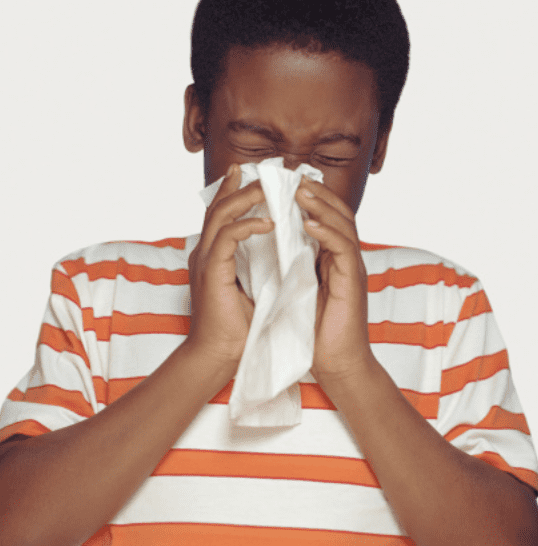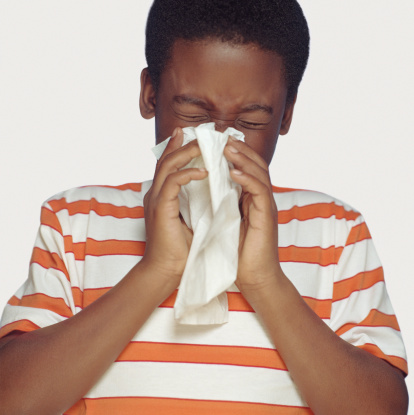Childhood Allergies in Chicago
This spring could be the worst season in years for allergy sufferers. Alzein Pediatrics doesn’t want your child to be among those whose enjoyment of the sunny weather is cut short by unbearable symptoms, so we’re providing information to help you help your child combat allergy season.
Our early warm weather means earlier – and more – pollen blooms. While it doesn’t seem that anything is really “blooming” today, the trees and shrubs that are unfurling now are putting out massive amounts of pollen, and the grasses will soon follow. When your child inhales that pollen and she is allergic, her immune system believes the pollen is dangerous, like a virus, bacteria or other foreign substance. Her body then produces antibodies, which release histamines into her blood. Those histamines are what trigger the uncomfortable symptoms of allergies.
How to Recognize Childhood Allergies
While allergies make us think of sneezing, that’s not the body’s only response to irritating substances. Other symptoms can be confused with a summer cold that just won’t resolve itself or an ever-present upset stomach. Your child may also exhibit:
- red, watery or itchy eyes – which can lead to conjunctivitis (pink eye)
- coughing, congestion and difficulty breathing
- runny nose
- rashes and itching
- swelling
- abdominal pain, vomiting and diarrhea
Allergies can also trigger gastroesophageal reflux disease, which can affect your child’s long-term health.
When Should I Make an Appointment for Childhood Allergies in Chicago?
Make an appointment if your child has asthma or frequently experiences:
- nasal congestion
- runny nose
- sneezing
- eye issues such as dryness, swelling, or watering,rednessand itching
- chronic sinusitis, when nasal passages become swollen or inflamed
- multiple ear infections
- eczema
- hives
- cough
- headache
- abdominal pain, constipation or diarrhea
Because these symptoms aren’t always associated with allergies, it’s important to get your child screened for allergic reactions when symptoms persist for more than a week. At Alzein Pediatrics, we’ll perform a thorough physical exam and a complete allergy screening to identify the cause of your child’s discomfort.
Testing for Childhood Allergies
Testing is simple, non-invasive, needle-free and painless. Ms. Cermak or a member of our medical staff will apply antigens to your child’s back, using a sterile plastic applicator. Antigens are substances that can cause an immune response, such as the production of antibodies, in the body. In this case, the response is typically redness, swelling and itching. Your child will be gently exposed to 72 different antigens, including weeds, trees, grasses, molds, cat hair, dog hair and some foods.
The testing will take about 20 minutes, but the appointment itself may run about an hour so paperwork can be completed and we can discuss results and treatment plans.
Treatment Options for Childhood Allergies
Upon identification and confirmation of your child’s allergies, we’ll discuss appropriate treatments. We may decide that avoidance of allergens, such as staying away from dogs and cats, is your child’s best course. Over-the-counter antihistamines may be considered. Together, we’ll put a plan in place to relieve that discomfort as quickly as possible. Starting any medications or control methods before allergy season begins can be an effective way to prevent the most severe reactions. We’ll also talk about AllerVision, which helps your child build a life-long immunity to allergens.
AllerVision will formulate serums containing tiny amounts of your child’s specific allergens and ship them directly to your home. These serums will be administered via a dropper under your child’s tongue just once a day, slowly building a tolerance to these irritants in your child. The length of time your child will require the drops will be determined by the severity of the allergic reactions. Click here to read more about how AllerVision works.
Other ways to help keep reactions under control include:
- using air conditioning, which filters pollen and other irritants from the air
- staying inside between 10 am and 4 pm when pollen counts are highest
- stay inside on breezy days as pollen is carried by the wind
- keeping doors and windows closed
- washing clothes immediately when returning to the house after outdoor play
- taking a shower and washing hair immediately when returning to the house after outdoor play
Setting Up an Appointment for Childhood Allergies in Chicago
Now is the perfect time for allergy testing and treatment. Please click here or call 708-424-7600 today to make your child’s appointment. If you have questions about insurance coverage, our professional administrative staff is happy to provide answers.
Stephanie Cermak PA-C and all of us at Alzein Pediatrics will ensure that you will leave your child’s appointment with a clear understanding of their allergies and how they are best treated.



